
“Why does Jesus have to tell us to love one another if we have been made in the image of God whose very being is faithfulness and love?”
This question from last Sunday’s sermon led us into the narrative of humanity’s turn away from God and their plucking the fruit of the tree that brings the knowledge of “good and evil”, of life’s joys and sorrows.
What follows is the information in the booklet we handed out following worship explaining the images used in our sanctuary last Sunday. The sermon series is designed to help us understand what Jesus was telling his followers on the road to Emmaus about the fundamental witness of the scripture to the sacrificial, redemptive love of God. (For more information about this series, see the explanation in the post for week 1.)
In the middle of the garden were the tree of life
and the tree of the knowledge of good and evil.

In the garden is the tree of life. We are mortal creatures, but we are not made for death. There is a food that grants life. The tree of life shows up in Revelation. Christ has opened the way to the tree of life. It bears fruit in every month “and the leaves of the tree are for the healing of the nations.”
But there is also a tree that will give the knowledge and experience of life’s sorrows, the knowledge of what is beautiful and what is brutal, what is kind and cruel, what is joyful and grievous. Here are the tears of life from which God would protect us. And so the command: every tree but this one.
“Did God say, ‘You shall not eat from any tree in the garden’?”

Trouble comes already with the question. Humans are free to choose to trust God’s word or to trust their own judgment. Until now they live in a perfect trust: they are “naked and not ashamed,” vulnerable but not fearful, open to one another and to God not turned in on themselves, living in perfect love of God and one another.
But then comes the question: “Did God say…?” It is the kind of question that plants doubt and uncertainty. Instead of trusting God’s word they question it. It is like a remark to a woman or a man, “Are you sure your husband/wife is working when they come home so late?” The question plagues the hearer and the harmony of the relationship is torn.
Now comes the decision whether to abide in God’s word or turn aside. And suddenly they are listening to the serpent deny the consequences of turning away from God’s word. Now they are hearing the serpent insinuate that God is trying to preserve his privilege and position as the knower of these things. Now they are deciding for themselves: it looks delicious, it tastes sweet, and it’s good to be wise. And the deed is done. They reach for the fruit.
When the woman saw that the tree was good for food,
and that it was a delight to the eyes,
and that the tree was to be desired to make one wise,
she took of its fruit and ate.

Adam and Eve. Skulpture of Eugeny Kolchev. 2003, bronze. Gallery La-Sandr Art, Minsk.
She also gave some to her husband, who was with her,
and he ate.
Adam was with her. Though he will try to blame this on the woman – and God who gave him the woman – he was with her. He was a partner in this act.
And even if he were only a follower, there is shame here, too. It shows something dark and troubling about the human heart. We follow too easily down pathways we ought not tread. We go with the crowd. We surrender to hates and fears and wars. We yield to peer pressure and social convention. We are silent when we should speak. We go along.
Then the eyes of both were opened,
and they knew that they were naked.
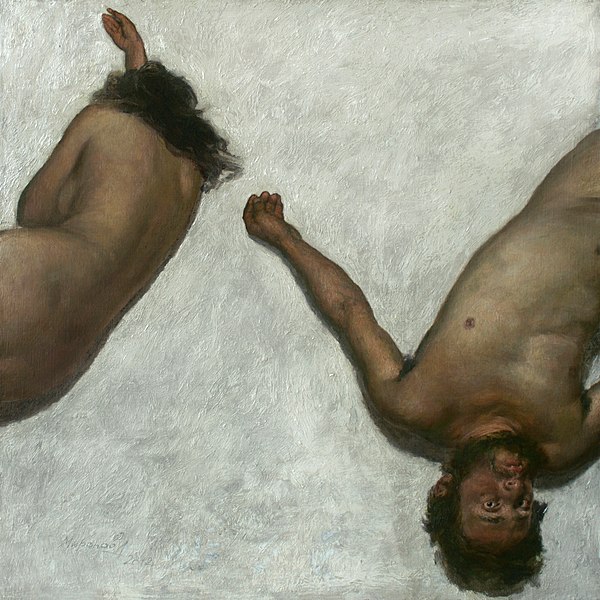
Their communion with God is broken. Their communion with one another is broken. They hide (vainly) behind fig leaves from the eyes of one another. They hide (vainly) in the bushes from the gaze of God. Alienation. Pretense. Secrets. Shame. They know sorrows.
Adam and eve. The fall of man. 2012. Oil on canvas. 60×60. Artist A.N. Mironov
The Lord God called to the man, and said to him,
“Where are you?”

The first question is not asked because God doesn’t know where the humans have gone. The question is asked because they need to see that they are hiding. It is a hard question, but a gracious one. Where are you? What is the truth of your life? What has come of the human race? What sorrows do we wreak? We need to see the hammer and nails in our hands.
John Marton. Oil on canvas. circa 1823-1827. Victoria and Albert Museum – London (United Kingdom – London)
“The woman you gave me…”
The finger pointing is comical, but so true about us. But God gives the humans the right explain themselves. He listens. The God who speaks listens.
Do hear ourselves? Do we recognize the human heart, willing to deflect and excuse and blame even God for our choices and deeds? Do we hear the voice of God ask that simple question, “What have you done?” not as an accusation, but an invitation to choose to live in the truth?
But nevertheless, the action has consequences.
“I will put enmity between you and the woman,
and between your offspring and hers.”

Enmity. It’s not only the relationship between God and humans, and the relationships between humans, that have been disrupted; humanity’s relationship with the natural world now involves fear. There are snakes. Where we lived in harmony with the natural world, now it is a stranger. There are things that creep in the night. There are lions that roar. Dogs that bite. The deer turn back into the forest and the turtle pulls into his shell. There is fear.
Western Diamondback Rattlesnake, Ulm, Germany, Zoological Garden.
“By the sweat of your face you shall eat bread until you return to the ground,
for out of it you were taken.”

Sweat. What was work now becomes labor. What was good becomes mixed with struggle. Childbirth is now labor pains. The ground gives weeds with the wheat. There are worms in the apples and crows in the field. Gentle rains become storms, and an unseasonal freeze can kill the oranges. The joy of work remains, but it is mixed with sweat. The joy of childbirth remains, but it too is mixed with sweat. We turned from trusting God’s word. We chose to know sorrow.
And ultimately the ground from which we came will take us again.
Parc Tivoli, Mulhouse: statue of a perspiring worker (1905)
At the east of the garden of Eden he placed the cherubim,
and a sword flaming and turning
to guard the way to the tree of life.

“The serpent said to the woman, ‘You will not die.’” It was a lie, of course.
Yes, death didn’t come immediately. God didn’t strike them down. But death came. They lost the garden. And with the garden they lost the tree of life. Now the death-free life that had been provided for them is lost. They go out into the world of sorrows.
There is grace here, however. It is a kindness not to live forever in our sin. Imagine if every Hitler and abuser were eternal? Imagine if we lived forever knowing betrayal? Or infirmity? Or shame? There is a hidden grace here.
And there is a visible grace: God clothes them in animal skins. There is no killing, yet. Leaves and grass were all they would have had as they went forth from the garden. But God provides them with clothing to keep them warm, to protect them, to provide some cover to soften their shame.
There is a curse on the land and the serpent, but not on the humans. Life has been thrown off kilter, but the rivers still flow to water the earth. There is sorrow – and more sorrows to come – but God continues to care for his creatures. There is still goodness. There is still beauty. We are not cursed. Innocence is lost, but we can still choose faithfulness and love.
The Expulsion from Paradise. Christian Rohlfs – 1933
Cover Image: misericord from St. Etienne cathedral of Metz (France)
© Text by David K. Bonde, Los Altos Lutheran Church, 2017














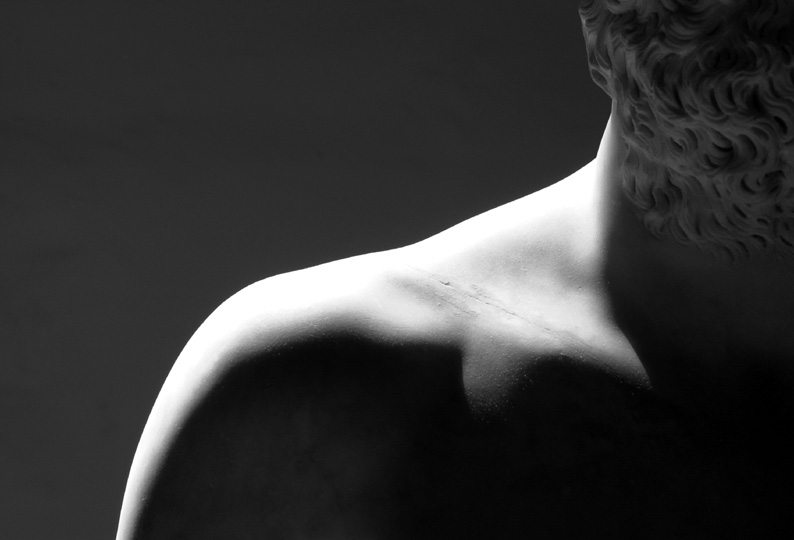

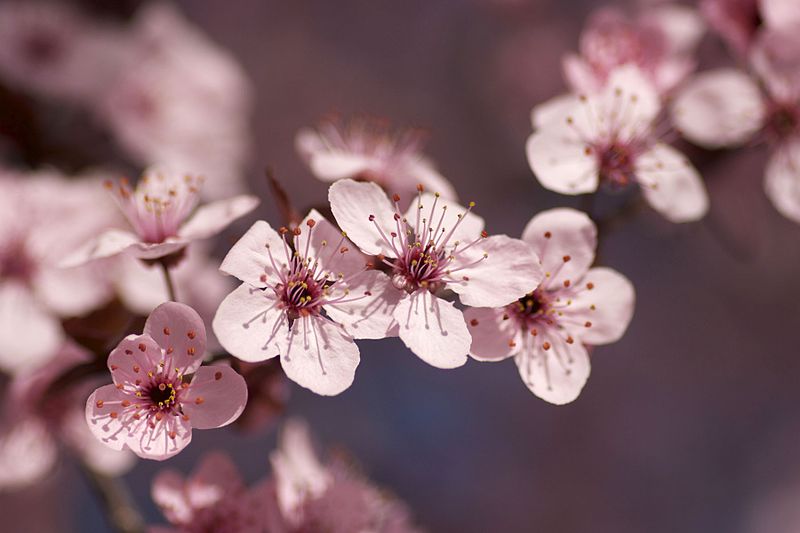




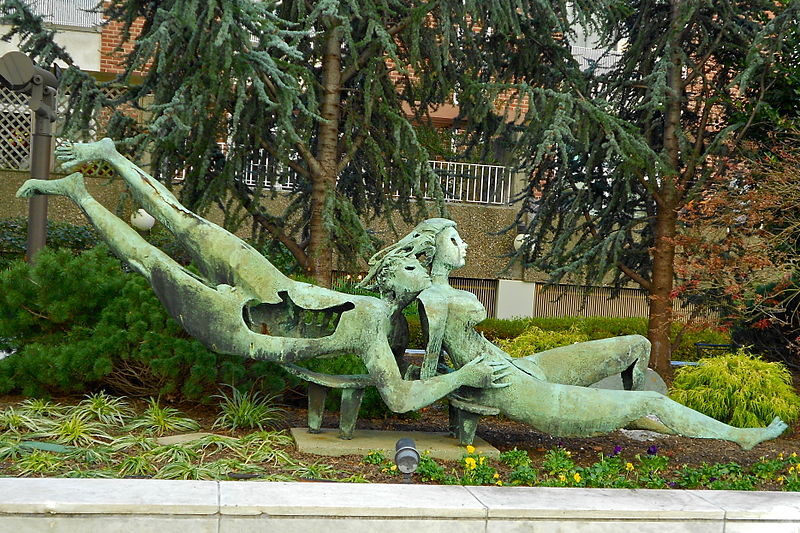
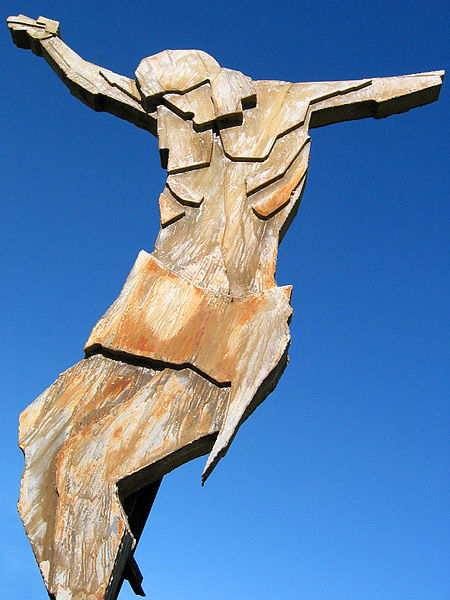

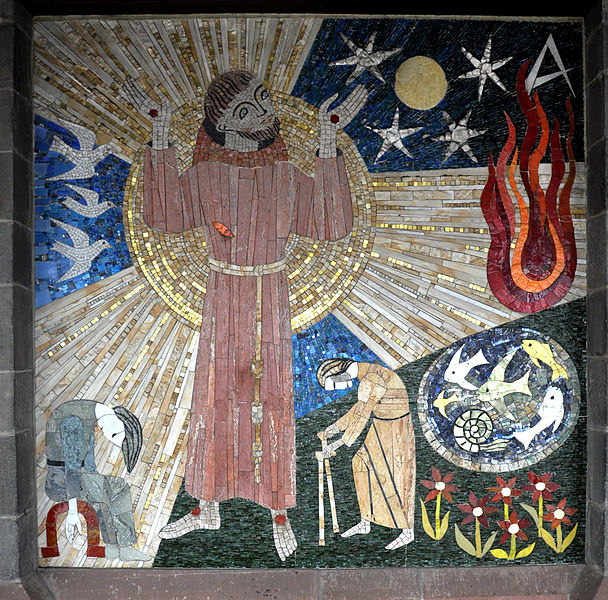
 Divorce. St. Francis. Jesus blessing children. The blessing of the animals. The praise of God who is the author of all. Eden and the creation of a good and perfect partner equal to the first human. All the readings and elements of our worship on Sunday actually fit together rather nicely – though you wouldn’t expect it. Why preach about divorce on the day you invite friends and neighbor to have their pets blessed? Because we are a people created for Eden and living outside it. Because Christ has come to restore the lost harmony, the lost grace, the lost fidelity, the lost joy and life of the world.
Divorce. St. Francis. Jesus blessing children. The blessing of the animals. The praise of God who is the author of all. Eden and the creation of a good and perfect partner equal to the first human. All the readings and elements of our worship on Sunday actually fit together rather nicely – though you wouldn’t expect it. Why preach about divorce on the day you invite friends and neighbor to have their pets blessed? Because we are a people created for Eden and living outside it. Because Christ has come to restore the lost harmony, the lost grace, the lost fidelity, the lost joy and life of the world.
